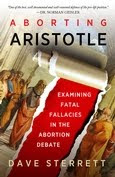 Counterfactuals: A conditional proposition (usually expressed in the form "if p, then q") in which the antecedent (p) is false. Examples include such propositions as "If the moon was made of green cheese, then it would be tasty" and "If Abraham Lincoln had not been assassinated, then racial reconciliation after the Civil War would have been advanced." There is a vigorous debate over the status of counterfactuals that deal with free human actions, such as "If John had been offered a $5,000 bribe, he would have freely refused it." Advocates of Molinism claim that such propositions have a truth value that God does not determine. They claim as well that God knows all such propositions and uses this knowledge in the providential governance of the universe. This allows God to control the outcome of events without impinging on human freedom.1
Counterfactuals: A conditional proposition (usually expressed in the form "if p, then q") in which the antecedent (p) is false. Examples include such propositions as "If the moon was made of green cheese, then it would be tasty" and "If Abraham Lincoln had not been assassinated, then racial reconciliation after the Civil War would have been advanced." There is a vigorous debate over the status of counterfactuals that deal with free human actions, such as "If John had been offered a $5,000 bribe, he would have freely refused it." Advocates of Molinism claim that such propositions have a truth value that God does not determine. They claim as well that God knows all such propositions and uses this knowledge in the providential governance of the universe. This allows God to control the outcome of events without impinging on human freedom.11. C.Stephen Evans, Pocket Dictionary of Apologetics & Philosophy of Religion







































